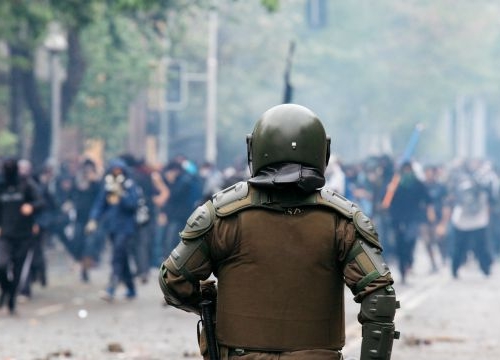Breaking the Cycle of Repression Against Activists and Protesters Through Accountability
Event


Adobe
On 28 June 2023, our Researcher the UN Special Rapporteur on the rights to freedom of peaceful assembly and of association Clément Nyaletsossi Voule will present to the 53rd session of the United Nations (UN) Human Rights Council (HRC) his report Advancing Accountability and Ending Impunity for Serious Human Rights Violations Related to the Exercise of Peaceful Assembly and Association.
The report was prepared based on contributions and consultations with Member States, national human rights institutions, civil society, and victims’ groups and representatives. In the report, the Special Rapporteur examines through a victim-centred approach, the gaps in accountability for serious crimes committed against activists and protesters. He recalls that ensuring accountability for violations related to the exercise of the rights to freedom of peaceful assembly and of association is an integral part of the responsibility of States to respect, protect and enable those rights.
The side event to the HRC 53rd session – co-organized with the UN Special Rapporteur on the rights to freedom of peaceful assembly and of association, the International Bar Association’s Human Rights Institute, CIVICUS and the Permanent Mission of Costa Rica– aims to further the exchange of views among civil society, State representatives and UN bodies on avenues to advance accountability and end impunity for serious abuses committed in the context of exercising the rights to peaceful assembly and association. It will highlight specific challenges related to ensuring accountability for serious abuses against those exercising their fundamental freedoms and will explore the role of the international community, including regional bodies and the UN to close the accountability gap. It will also explore the role of civil society in monitoring civic space violations to advance accountability and the specific challenges they face. Finally, it will expand on the recommendations outlined by the Un Special Rapporteur in the report.







